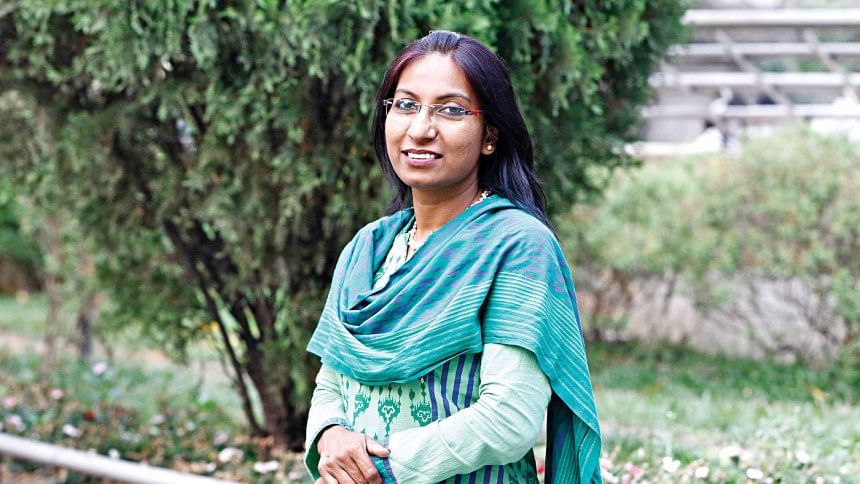Challenges for young journalists: Pointers by Rita Nahar

What role does DRU play in encouraging youth journalism?
DRU is an excellent platform for young journalists, providing ample opportunities for seniors and juniors in this profession to work together to solve problems, and discuss various issues. Our special training programmes are designed to be youth-friendly. Our magazine, Reporter's Voice, and women's platform, Konthoshor, highlight experiences of young journalists.
I would like to add that there are more than 1, 800 members at DRU, and only 140 of them are women. However, more and more women are joining DRU steadily. I believe that encouraging women to take the lead in conversations about their careers is important. I, along with the other women at DRU, are emphasising on leadership roles for women and girls at our organisation, and in journalism on the whole. Under my initiative, for the first time, six female journalists were honoured by DRU, on International Women's Day.
What were some of the challenges you faced as a young journalist?
Being underpaid remains a downside of this profession. Though our salaries have increased a bit over the years, they are still far from enough.
Working on three to four news reports every day was another challenge. We hardly had the time to write in-depth, special features. Even then, we were questioned about our lack of participation in features. As young journalists, opportunities to raise our voices on such issues were limited.
There has been a rise in citizen journalism, especially amongst the youth, on social media. Most young people tend to share anything and everything on social media, believing it to be news. What are your thoughts on this?
I do not support the concept of citizen journalism. Sharing information on social media comes with responsibility. Information and news are not the same. As journalists, we verify every piece of information and gather additional evidence, before filing a report. More often than not, people just share the raw information on social media, without verifying properly.
What advice would you give to young journalists, and to those who dream of pursuing a career in journalism?
Journalism is a risky field. With the implementation of the Digital Security Act, there are many regulations in place. One of our biggest challenges today is working around these rules, keeping our safety in mind. Moreover, before working on a report, journalists must gather basic knowledge and information about the issue at hand. I have seen many young ones who are not informed or interested enough to deliver proper news. This attitude must be changed. Journalists have to be determined to make positive impacts, despite the restraints in this profession.
The author is Editor, Arts & Entertainment and Star Youth. Her twitter handle is @elitakarim.

 For all latest news, follow The Daily Star's Google News channel.
For all latest news, follow The Daily Star's Google News channel. 



Comments